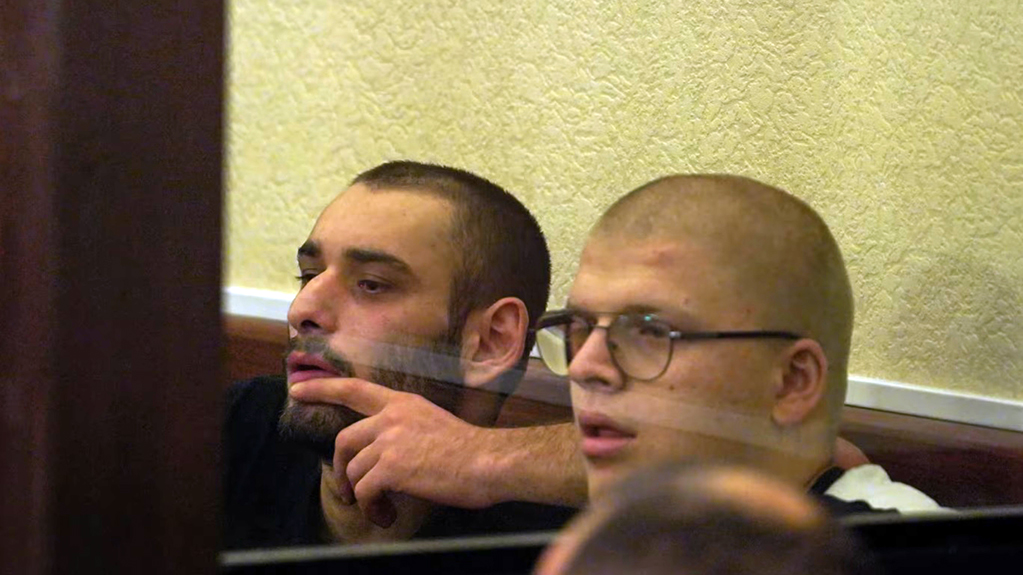Saba Meparishvili, 23, and Omar Okribelashvili, 19, have been imprisoned for 6 months by the Georgian Dream government. The authorities are punishing them as an example for damaging a 250-GEL iron fence near the parliament during a protest against the Russian Law. The Ministry of Internal Affairs is the victim in this case. The young men face up to 6 years in prison.
News
Saba Meparishvili, whose family lives in the village of Dikhashkho in Vani, comes from a socially vulnerable background. His father is disabled, and another family member has been unable to move for 15 years. His mother works long hours in a restaurant for 30 GEL a day. Before his arrest, Saba worked as a construction worker to support his family.
“He had gone to Tbilisi for a month to work, saying, ‘I will help you a little.’ When the Russian Law was adopted, I got angry and went where others stood. Georgia should be free, not aligned with Russia. We should go where the hearts of this country and its young people are drawn - to Europe,” his mother, Shorena Rokhvadze, recalls from their conversation after his arrest.
The Prosecutor’s Office has charged Saba Meparishvili and Omar Okribelashvili under Article 187, Part 2, Subparagraph c of the Criminal Code, which pertains to group damage to property. The Parliament accelerated the punishment for this article following last year's March protests, increasing the maximum prison term from 5 to 6 years without providing justification in the explanatory note to the draft law. The Prosecutor’s Office is using this article against other activists arrested at protests. Because the sentence is harsh and disproportionate, the Institute for the Study of Democracy has appealed it to the Constitutional Court. The Georgian Dream party did not address this article in the broad amnesty passed a few months before the October 26, 2024, parliamentary elections.
The court has extended the pretrial detention of Saba Meparishvili and Omar Okribelashvili three times. The judge has never granted the lawyers' request to release the defendants on bail. The Prosecutor’s Office presented all available evidence to the court, the investigation was completed, there was no longer any possibility of influencing witnesses, and all the witnesses in the case are police officers.
Damages have also been compensated - the defense paid the Ministry of Internal Affairs 400 GEL - 250 GEL for the damage to the fence and 150 GEL for the cost of a craftsman’s services to restore the tin.
The hearing of Saba and Omar’s case has been postponed several times, allegedly as if Judge Natia Gudadze was sick. The parents believe the government is stalling, hoping that if the defendants are found guilty, the president will not be able to pardon them. On September 20, Salome Zourabichvili pardoned Giorgi Shanidze, an activist arrested during a protest against the Russian law. The Prosecutor’s Office accused him of damaging a surveillance camera, and the court sentenced him to 4 years in prison.
“They think they can lock Saba and Omar in prison and show the country that we’ve caught these young people, and we’ll do the same to you if you come out to protest,” says Saba’s mother.
The next court hearing, originally scheduled for November 21 but postponed due to the judge’s illness, is now set for November 22 at 4:00 p.m. The defendants’ pretrial detention period will expire on Saturday, November 23. The judge must either extend their detention once more or release them on bail. By law, pretrial detention is permitted for up to 9 months before a verdict is reached.















